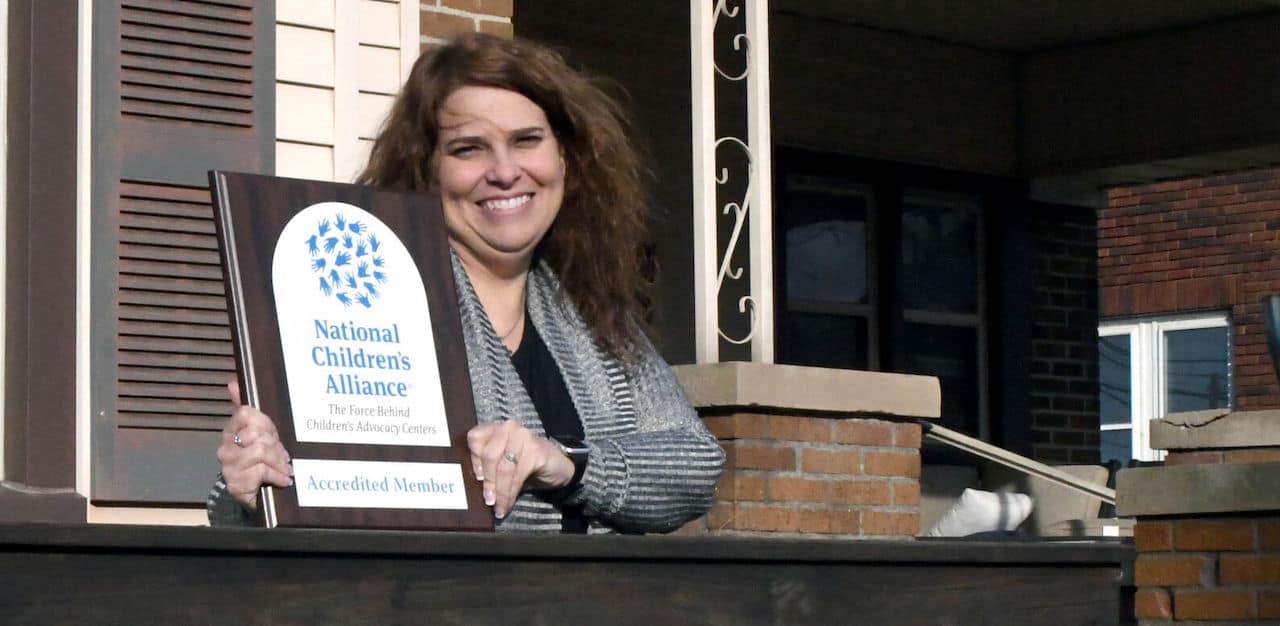An Indiana Court of Appeals panel unanimously agrees forensic interviews can be used as testimony and not violate a defendant’s Sixth Amendment rights.
[box type=”alert”]Editor’s note: The following story describes events and material that may be disturbing to some readers.[/box]
Sylvia’s Child Advocacy Center in Boone County has established the first legal precedent in Indiana for admitting a child’s forensic interview footage as testimony in a trial. The case stems from Perryman v. State [PDF], which was decided by a Court of Appeals opinion earlier this month.
The trial presented the September 2015 case of an eight-year-old boy abused by his mother’s boyfriend, 25-year-old Coltan A. Perryman. According to the court’s findings, the child was at his mother’s home while the mother was working a late shift. The boy’s grandmother and the mother’s boyfriend, Perryman, were at home. On September 30, 2015, Perryman pinned the boy to his bed and began assaulting the child with his right hand. Court documents say the boy told interviewers later it was because Perryman was “mad”.
Perryman made every effort to hide the boy’s face and shoulders from the grandmother. When the boy’s mother arrived around 1 a.m. that night, Perryman dissuaded her from taking the boy to the hospital. The next morning the boy’s face had worsened with intense bruising and swelling that impaired vision. The mother and Perryman took the child to a children’s hospital where doctors notified the Indiana Department of Child Services. Perryman fled before DCS arrived, but was later arrested. Investigators who first saw the boy said they had “seldom seen injuries so severe.”
After being released from the hospital, still with severe bruising and swelling, the child was taken to Sylvia’s CAC in Lebanon where Lead Forensic Interviewer Kassie Frazier met the child late in the evening.
Child Advocacy Centers exist to reduce the number of times a child has to relive a traumatic experience by repeating and reliving trauma to detectives, DCS, more law enforcement agencies, and others. “This averages around 7-10 fewer interviews”, says Frazier. A defendant’s Sixth Amendment rights include the right to face their accuser in a jury trial if a plea agreement isn’t reached.
“A defendant’s Sixth Amendment rights include the right to face their accuser in a jury trial if a plea agreement isn’t reached.”
“Typically, we and most CACs in Indiana are working sexual abuse cases. Sometimes we get the extreme physical abuse case like this, or a child is a witness to violence. This child was told to place ice on by the perpetrator. He did that so long it resulted in frost bite to his lips, which made him difficult to understand. During the interview, I kept repeating what he was saying so we made sure we were hearing him correctly. In the video, he clearly struggled and you can see the intensity of the injuries. I think that made a huge impact on the jury,” says Frazier.
The jury trial didn’t convene until nearly a year and a half after the incident occurred. “In most every instance kids just want these events to stop. They don’t care that a person goes to jail or not and they don’t want the guilt of feeling they sent someone to jail. In a situation where you have to face the accuser, it’s even more traumatic and hard to be okay afterward,” says Frazier. The forensic video may be entered into a trial as evidence, but has never been used instead of testimony. “This is a first,” she says.
Prosecutors petitioned the Court to admit the forensic interview as testimony under Indiana’s “Protected persons” statute, which says a child under 14 does not have to testify because of serious emotional stress in the event of physical or sexual abuse. At the initial hearing in February 2016 to determine the video’s admissibility, the child was asked to answer questions before the judge, Perryman, attorneys, and select individuals like Frazier and the boy’s therapist. No jury was present.
“The questions weren’t really hard,” says Frazier, “But the child had a significantly hard time talking. He was trembling and kept staring at the defendant. The defendant was making faces and staring back,” says Frazier. Perryman knew the only thing separating him from jail was the child’s testimony. Despite recesses, the child could not testify. The judge decided it was too traumatic and reviewed the forensic interview tape and determined it, however, was reliable, accurate, and didn’t lead the child. It would be shown to the jury instead of the child’s testimony, and the jury would later sentence him to 28 years in prison.
Perryman’s attorneys appealed. By statute, the Indiana Court of Appeals must hear every case that is appealed to them. In his appeal, Perryman argued the forensic interview violated the Sixth Amendment. He also argued for a mistrial because of various issues in the proceeding of the trial, including that he could not have beaten the child with his right hand because he is left handed. The Court of Appeals’ three-judge panel unanimously agreed the errors cited were “harmless errors” and that Perryman attempted to deceive the court by using his left hand to take notes in the courtroom despite footage of him at his initial jail booking using his right hand. They also agreed with the trial court that the forensic interview was not leading and reliable and valid under the Protected Person’s statute.
“For the court to uphold this is amazing,” says Frazier. “I wasn’t worried about the outcome of this case. The whole interview was about an hour long, and half of that time was spent just talking about his dog just to get a report built up. I was proud of the work we did. I thought it was the best work I’ve ever done.”
Frazier hopes with a legal precedent established and an appeal to the Indiana Supreme Court unlikely that more trial courts across Indiana might start using forensic interview footage in lieu of in-person testimony for children under the age of ten. “We did everything in a way like we always do so it’s legally sound and an acceptable statement from the child.”
Perryman is being held in the Miami County State Correctional Facility on a 28-year sentence with three suspended for probation. The child is back in school and continues to receive help from therapists located on-site at Sylvia’s CAC.





2 thoughts on “Legal precedent set for using forensic interviews as court testimony for the first time in Indiana”
Comments are closed.